The Google March 2024 Core Search Update - Any Impact on Job Boards?
The new Google Search Core update is hitting low-quality AI sites hard. In this post, I will explain what is a Google Search Core update, how this update is different from the previous one, and what the impact is on job boards and aggregators.

Along the way, I will also explore a few topics like how we came to this, whether Google detects AI-generated content, how to properly use AI-generated content without negatively impacting your SEO and how to improve your ranking chances as a job board/aggregator.
First, let’s get some basics. What is a Google Core Update?
A Google Core Update is a significant change made by Google to improve how it ranks websites in search results. These updates, which happen several times a year, aim to ensure that users find more relevant, high-quality information when they search online. As a result, websites might see their positions in search results go up, down, or stay the same. Google advises that there's no specific way to adjust for these changes; instead, the best approach is to consistently focus on creating helpful, informative, and user-friendly content. These updates are part of Google's ongoing effort to make online searching a better experience for everyone. Whenever Google updates its search ranking algorithms, your site can do better or worse in the search results.
When were the last Google Core updates?
Google does multiple core updates yearly, but 2023 was a particular year, and we saw four core updates. These updates are essential for they significantly influence search engine rankings and overall user experience. The year began with the March 2023 Core Update, marking the first significant update in over six months. This was followed by the August 2023 Core Update, the second of the year, starting on August 22. Subsequently, the October 2023 third Core Update rolled out, beginning on October 5 and completing on October 20. Additionally, there was a fourth core update in November 2023, continuing Google's trend of regularly refining its search algorithms to ensure the delivery of high-quality, relevant search results.
Why did Google do four Core updates in 2023?
The answer here is straightforward – AI content. Every update was targeted at handling issues mainly related to AI content. Over time, it became significantly more accessible for people to push out AI-generated content at scale, even without technical knowledge.
By the way, Google made nine total updates in 2023. Here is an overview if you are interested.
Is this Core Update different?
It is not that different because the goal is to improve the quality of the search results. These algorithmic enhancements to the core ranking system are typical.
However, this time, the update mainly targets AI-generated content. Rightfully so.
If you read the announcement carefully, the focus is on two main goals:
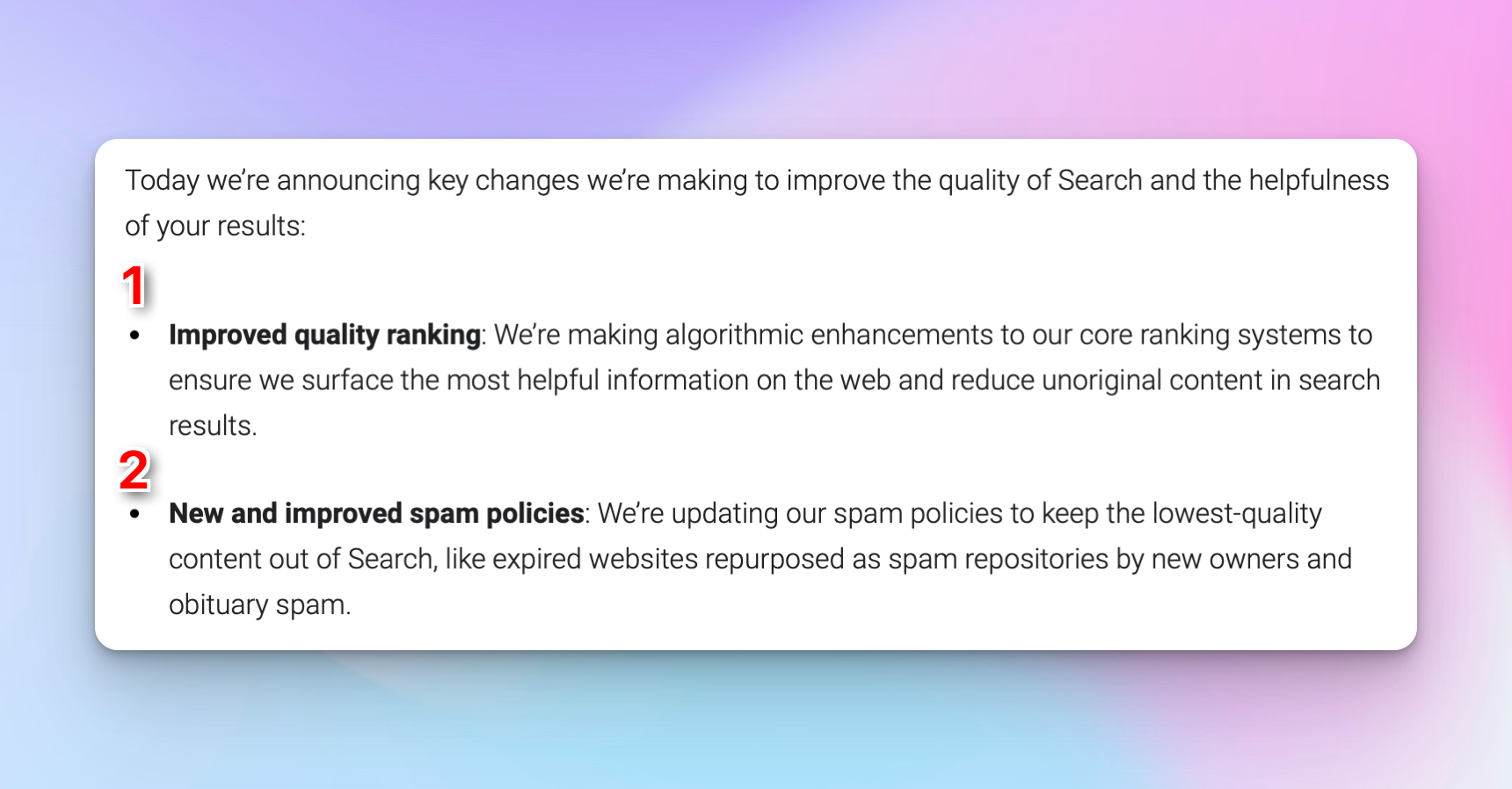
Focus on reducing unoriginal, low-quality content.
Building on 2022 (EEAT) efforts, the March 2024 core update further tunes Google's ranking systems. It aims to identify and demote unhelpful webpages, provide a poor user experience, or seem tailored more for search engines than actual users. The update targets explicitly sites created mainly to respond to specific search queries.
Scaled Content and Site Reputation Abuse
Google is also tightening its policy against using automation to create low-quality or unoriginal content at scale. This includes action against sophisticated methods of scaled content creation, whether through automation, human involvement, or a combination.
The blog post also mentions using expired domains, but this is a more advanced topic that is out of the scope of this discussion.
A bit of background
So, how have we come to this?
With the advancement of ChatGPT and OpenAI, we saw an explosion of AI-blog-post tools, each claiming that they can generate undetectable AI content. This led to many folks jumping on the SEO hype train, pushing out software-assisted sites with millions of pages.
Do you remember this guy?
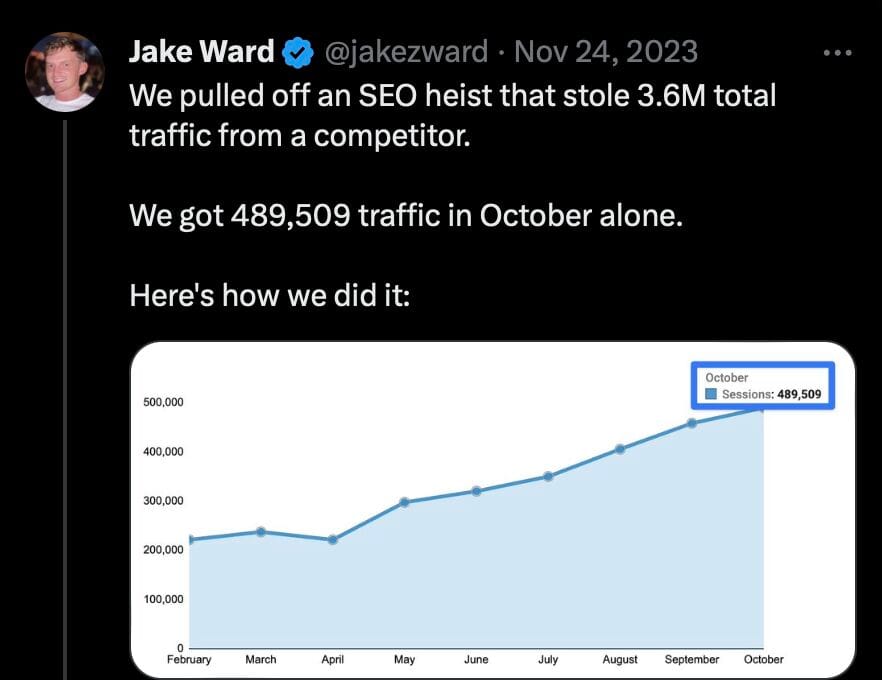
What happened to him after he "stole" 3.6M organic traffic from a competitor with generative AI?
He bragged online and used this as PR to launch his AI-writing tool, which can scrape a competitor's sitemap and generate AI content based on this.
Not surprisingly, this site and many more that have done similar stunts are gone today.
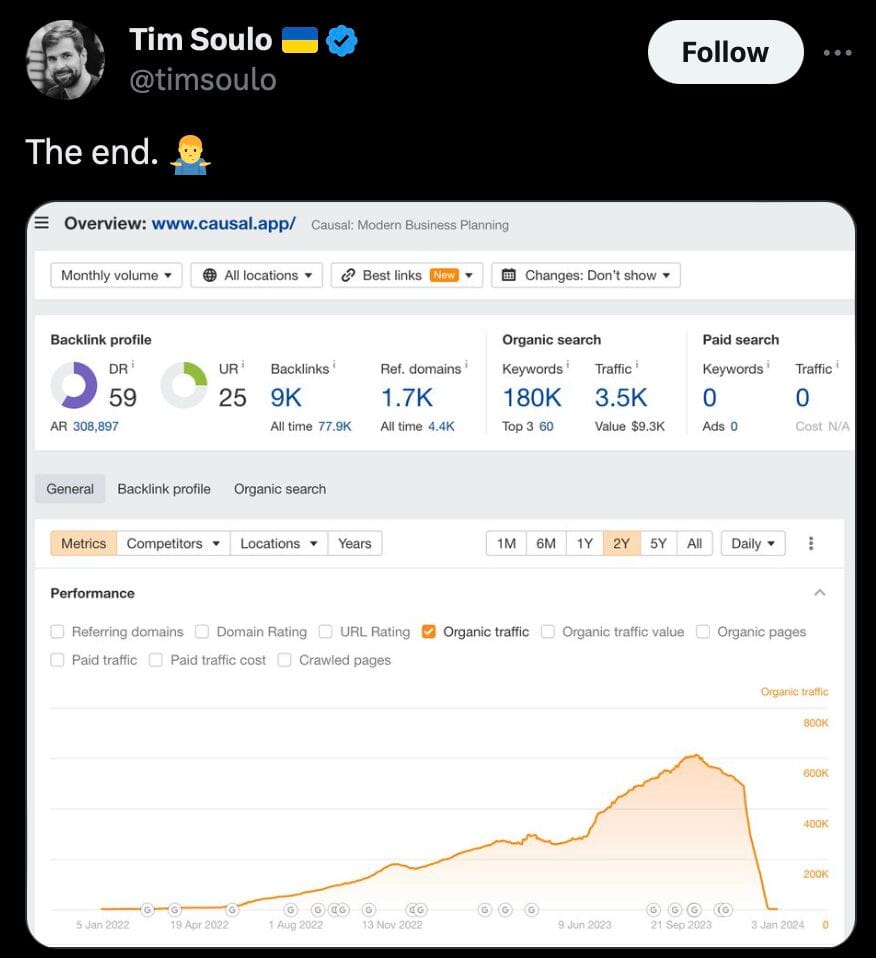
Many people have launched similar tools – there is a whole ecosystem of AI-writing tools, WordPress plugins, and content rewriting tools, which promise a bright future of unlimited organic traffic with zero effort.
I have extensively written about other types of tools with a similar promise – those advocating using the Indexing API for other content besides jobs and video. As we now know, sites using these hacks got penalized, too and lost all of their organic traffic.
What is the impact of the Google March 2024 Core update on the web so far?
It has been quite devastating for AI-heavy sites. There is a constant stream of examples on SEO-Twitter where well-known AI sites have been hit very hard with spam manual actions. Not only that but plenty of sites have been completely deindexed.
“AI SEO Influencers” like Julian Goldie, Indexsy and Jesse Cunningham have been deindexed.
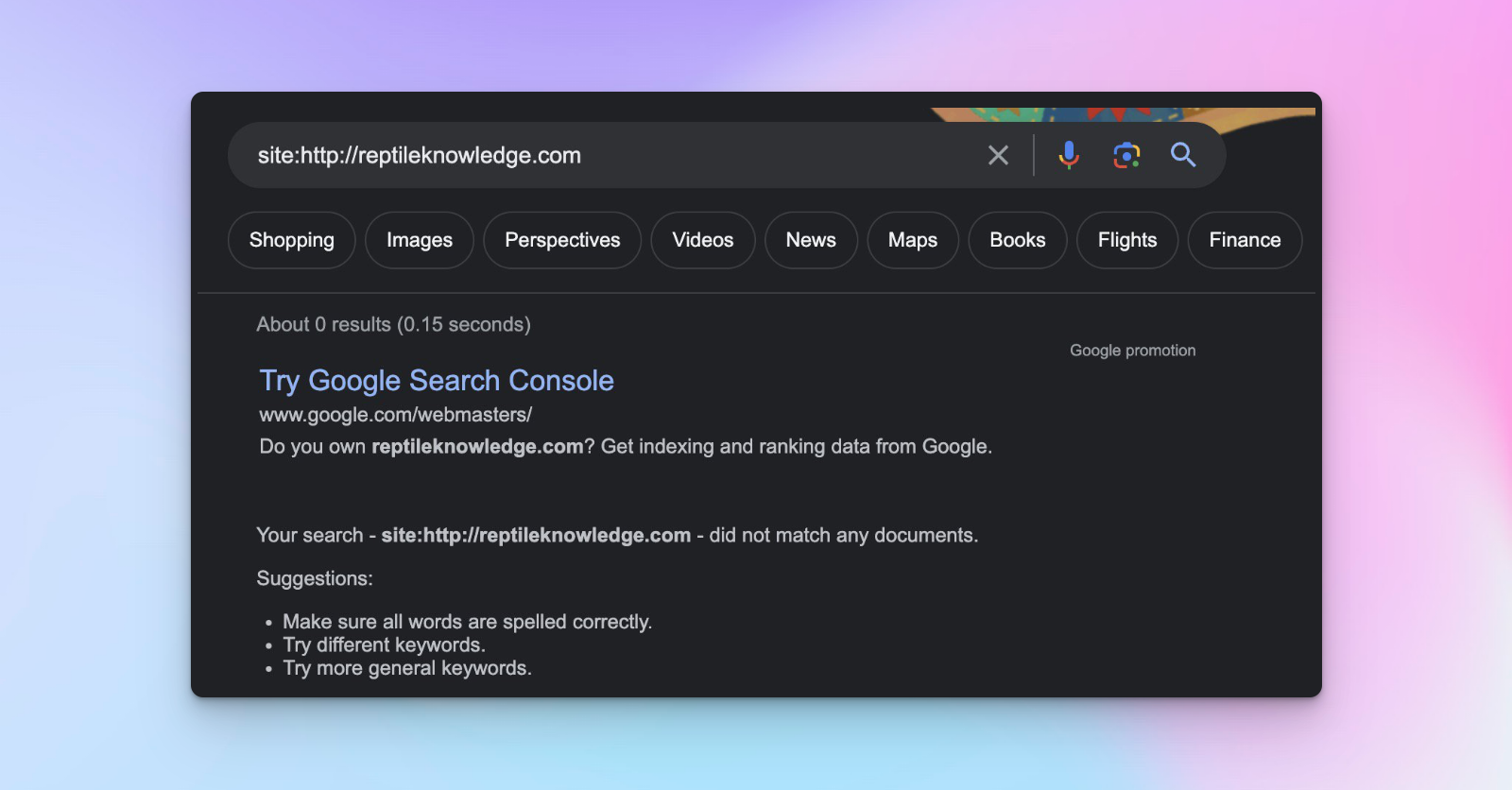
Still, the current update feels more like a manual review than an algorithmic one. There is still plenty of crappy AI content indexed by people who did not brag on Twitter about their SEO performance.
Some AI influencers made fundamental mistakes, like creating all sites under one search console account. This made everything for Google a bit easier – they need one indication for AI content per console account, which would be enough for a manual review of the rest of the properties.
Now, the main question is – did Google find an algorithmic way to filter out the crap, or is it all done manually against a group of SEO influencers that went public on Twitter?

Hard to say.
Although the current indications are that it is primarily a “built-in public” type of site, I believe that a 1.5 trillion dollar company will not do anything manually at this scale.
There are indicators – many of these people used duplicate search console accounts. The content was pushed extremely fast. They used the indexing API hack. The content has high bounce rates and is very heterogeneous.
Unedited content from GPT-3.5 can also be detected relatively quickly because of the low variance in the word distribution.
How does the March 2024 Google Core Update impact Job Boards and Aggregators
Besides a few sites, I don’t think the core update will impact job boards and aggregators much.
Why is that?
Primarily because most job boards use AI content sparingly. Sure, there is some AI-generated text for the search landing pages here and a few AI-written blog posts there, but this is very small compared to what Google is trying to solve.
This update targets large-scale AI content generators.
It targets the people who created elaborate machines scraping highly ranking content from other sites, repurposing this with AI and pushing it back to the index.
Of course, as with every rule, there are exceptions. I am familiar with two sites that heavily use low-quality AI-generated content for their blog area and some programmatic SEO pages. I am quite interested as to what will happen with them. For now, they are still listed and adequately indexed.
On the other hand, I have heard from multiple job boards that they have lost significant portions of their traffic in 2022 and 2023. Although this is irrelevant to this Core Update, I have some explanation, but we must dig deeper.
Introducing the Google Spam policies:
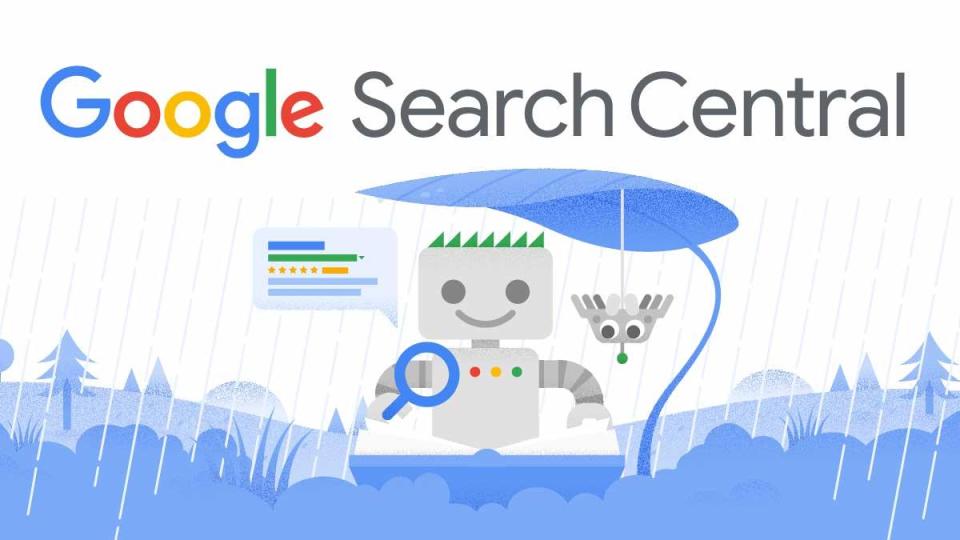
What can job board owners learn from the Google Spam policies?
First of all, I highly recommend that everyone who is even considering SEO read through these policies.
There is one section that I would like to turn your attention to. It is no new section; it has been in the policies for as long as I can remember, but I feel like Google started applying these rules a lot more for job boards.
The section I am referring to is Scraped Content:
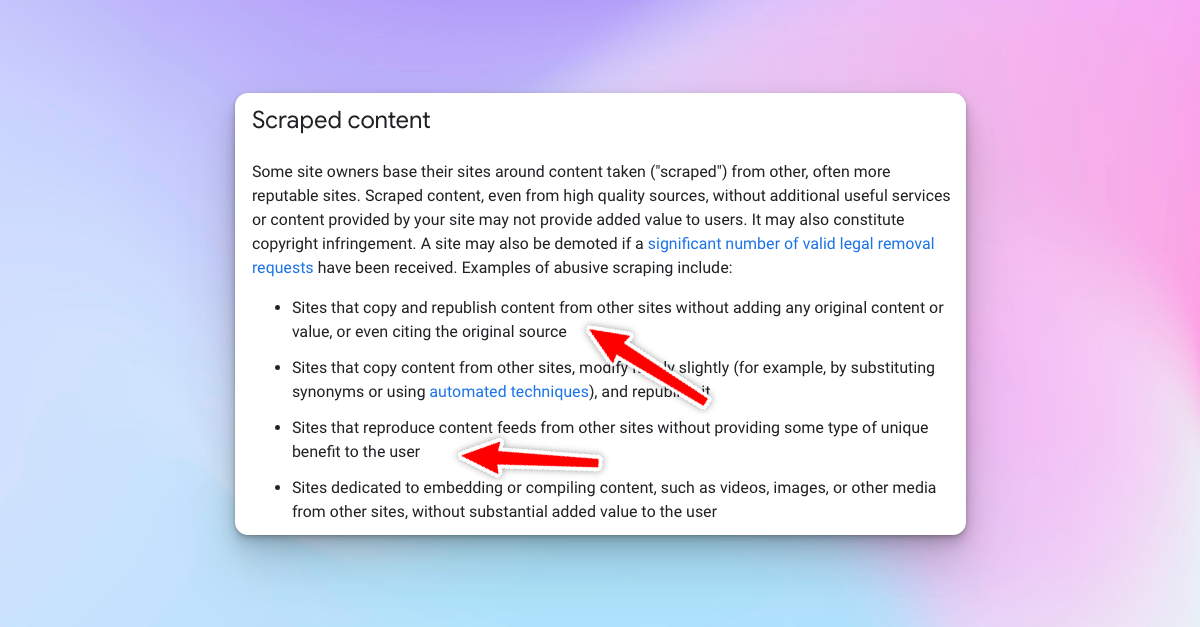
Job Boards and Aggregators are built on top of scraped job content. This defines the industry and has been entirely OK for a long time. Two years ago, you could have scraped some jobs and launched a niche job board, and in 2 to 3 weeks, Google would start indexing your site. Five years ago, people would set up category-specific subdomains on their primary job board and push the same job subsets from the leading site to the subdomain but still get traffic.
But you know what changed? Job scraping became a lot easier. Getting backfill from Appcast became very easy. Everyone has access to millions of jobs with a few clicks.
Jobs are not unique content; they are primarily sponsored jobs. Everyone has the same jobs.
Today, getting a new job board indexed is almost impossible without three ingredients:
- High-quality, niche-relevant content at scale or carefully crafted programmatic SEO content
- Long-tail job content
- Extensive taxonomies mapped to user search intent.
If you want your job board to rank, you need to think like Google.
Why should Google send a user to this new site when 100 other sites with a higher domain authority serve the same job?
They would only do it if you provided a better user experience – more information relevant for the job seeker, more structured data, salary reports, company reviews, better similar jobs, and information about the employer.
Of course, there are backlinks (the Jooble strategy), but only if you are willing to invest a substantial amount of money; backlinks you buy for $200-300 on Fiverr are NOT helpful for job boards.
Key Takeaways
If you want to use AI-generated content, be careful. Refrain from overexposing yourself to AI-generated, unedited texts with thin content.
Make sure that you keep a low, unedited AI-content ratio.
Ensure that even if you use AI, your content is qualitative. The best example here would be when you provide the outline for a blog post and ask ChatGPT to write it using your input, and you do a final edit. Or the use case when you write a blog post and ask ChatGPT if it has suggestions for improvement. Or when you use AI to write the intro or the post summary. These are GOOD use cases for generative AI.
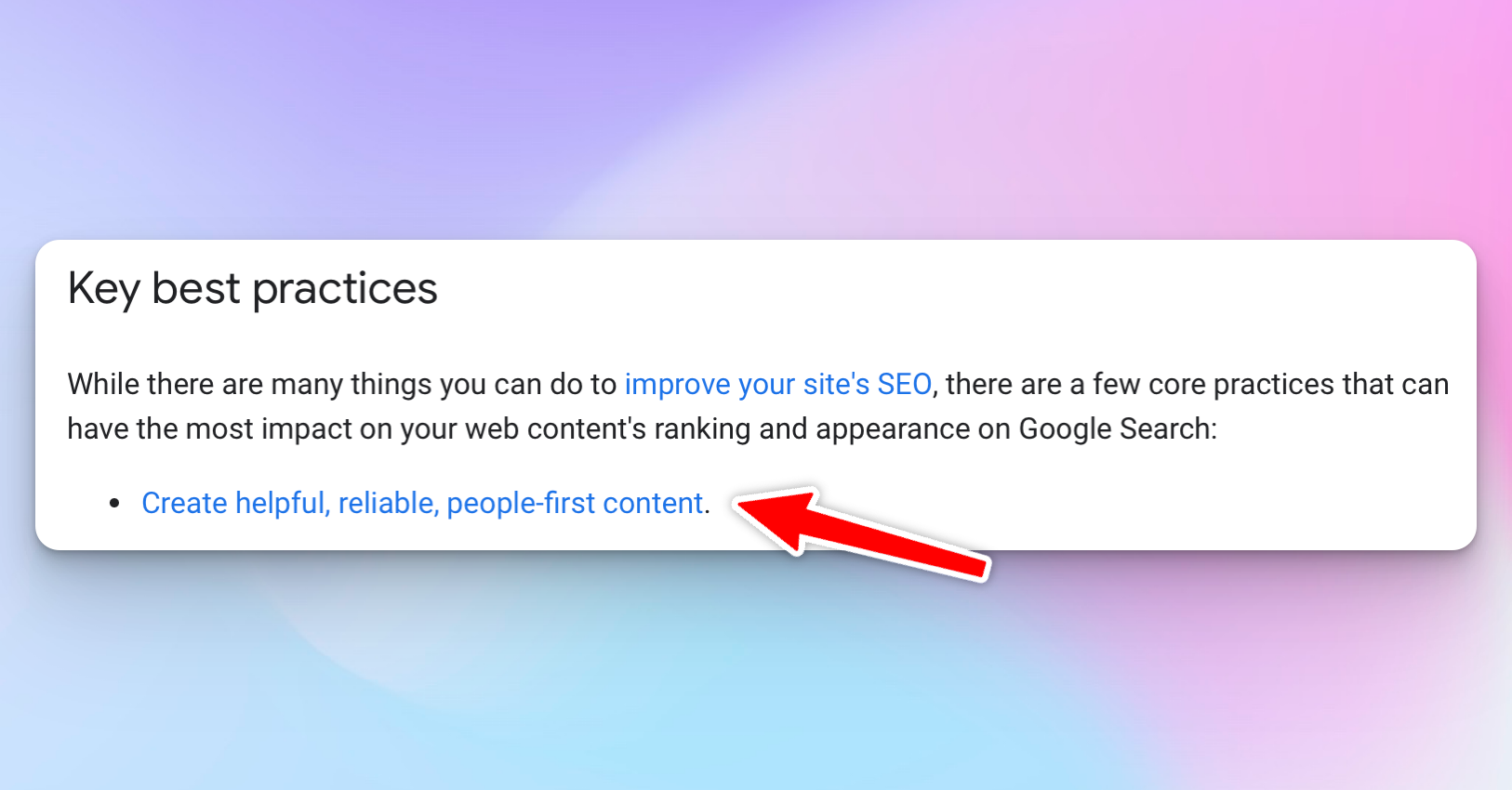
The key message, as always, is that there are no shortcuts with SEO, at least not ones that can be shared with millions of people on social media. You have to do the work. There are, occasionally, natural shortcuts that experienced SEO specialists discover. Still, they are not shared to drive sales of questionable SaaS products – these people use them to make money for their businesses. The leverage is significantly higher, and they are used to monetize rather than sell to others.
Thank you for reading. If you enjoyed my content, subscribe and be the first to get the new posts.
